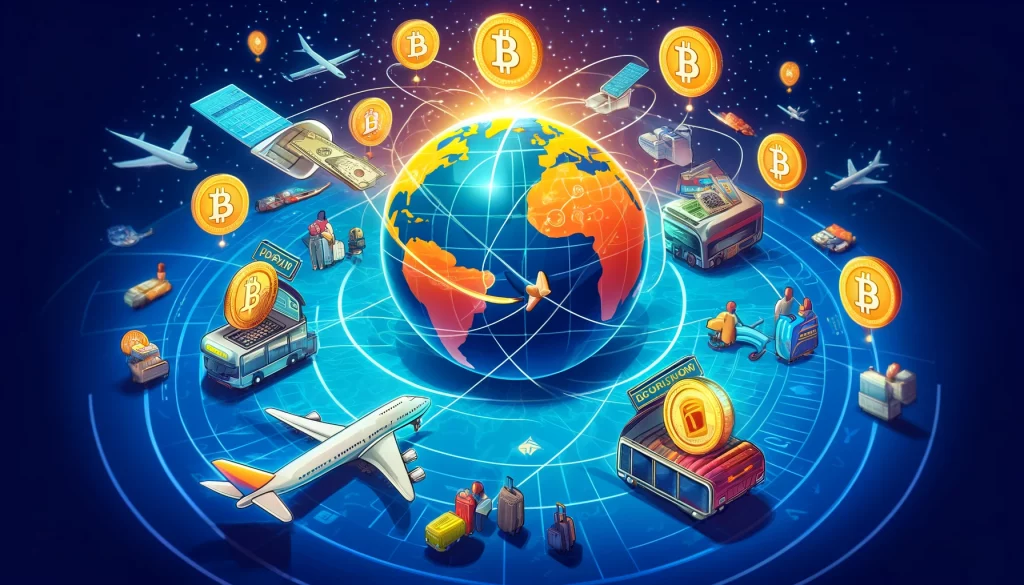Blockchain Isn't Just About Crypto; It's Transforming Travel
Blockchain technology, often synonymous with cryptocurrencies, is rapidly transcending its financial roots to revolutionize numerous industries, with travel emerging as a major beneficiary. As the travel industry embraces digital transformation, blockchain is being positioned as a solution to longstanding inefficiencies, enhancing transparency, security, and efficiency across the board. Its potential impact stretches far beyond transactional capabilities, reshaping how travelers and businesses interact in unprecedented ways.
The Transparency Revolution
Transparency has long been a challenge in the travel industry, particularly concerning pricing structures and data sharing. Blockchain addresses this by providing a decentralized ledger system that records every transaction immutably. For travelers, this means the ability to see exactly where their money goes, from booking fees to commissions, eliminating hidden charges. Businesses benefit from a clear audit trail, reducing disputes and ensuring compliance with financial regulations.
Moreover, the transparency extends to customer reviews and ratings. By recording reviews on an immutable blockchain, fraudulent or manipulated feedback becomes virtually impossible. This ensures that travelers can rely on authentic reviews to make informed decisions, while service providers can build genuine reputations without fear of competitors gaming the system.
Enhancing Security and Identity Verification
The travel industry’s reliance on personal data makes it a prime target for cyberattacks. Blockchain’s encryption capabilities offer a robust solution to this vulnerability. By decentralizing and encrypting personal data, blockchain minimizes the risks associated with centralized data breaches.
One of the most promising applications of blockchain in travel is in identity verification. Traditional methods of verifying identities at airports and hotels can be cumbersome, time-consuming, and prone to errors. Blockchain-powered digital identities simplify this process by allowing travelers to store and share verified identity information securely. With a single, universally accepted digital ID, travelers can breeze through customs, airport check-ins, and hotel registrations. For businesses, this translates to faster, more efficient operations and happier customers.
Streamlining Payments and Bookings
Blockchain technology is also revolutionizing how payments and bookings are handled in the travel industry. Traditional payment systems often involve multiple intermediaries, leading to high transaction fees and delays. Blockchain eliminates these intermediaries by enabling peer-to-peer transactions through cryptocurrencies or stablecoins. This not only reduces costs but also ensures faster, more reliable payments.
For travelers, blockchain-powered smart contracts are a game-changer. These self-executing contracts automatically enforce the terms of an agreement, such as issuing refunds for canceled flights or delayed services. The automation reduces the reliance on third parties and ensures travelers are compensated promptly and fairly. Additionally, blockchain platforms can consolidate travel services, allowing users to book flights, hotels, and car rentals in a seamless, single transaction, improving user experience and reducing administrative burdens for businesses.
Tackling Fraud and Counterfeiting
Fraud and counterfeiting remain significant issues in the travel industry, particularly in ticketing and loyalty programs. Fake tickets and fraudulent reward points not only erode customer trust but also cost businesses millions annually. Blockchain’s ability to create unique, verifiable digital assets addresses these concerns effectively.
For instance, blockchain-based ticketing systems ensure each ticket is tied to a unique, immutable record, making counterfeiting virtually impossible. Similarly, loyalty programs can be integrated into blockchain platforms, providing travelers with secure, transparent access to their points. The interoperability of blockchain further allows users to consolidate rewards from different providers, making loyalty programs more attractive and practical.
Environmental and Ethical Impact
Beyond its operational benefits, blockchain’s integration into travel is also fostering a more ethical and sustainable industry. Blockchain’s transparency can help track the environmental impact of travel services, from carbon emissions to sustainable sourcing. This empowers travelers to make environmentally conscious decisions and holds businesses accountable for their practices.
Moreover, blockchain can support ethical travel initiatives by ensuring funds reach their intended beneficiaries. For example, donations to community-based tourism projects or conservation efforts can be tracked on the blockchain, assuring contributors that their money is making a genuine impact.
Conclusion
As blockchain technology continues to mature, its transformative potential in the travel industry becomes increasingly evident. From enhancing transparency and security to streamlining operations and fostering sustainability, blockchain is paving the way for a new era of travel innovation. While challenges such as scalability and regulatory hurdles remain, the industry’s growing adoption of blockchain solutions signals a promising future. Travelers and businesses alike stand to benefit from a more efficient, secure, and ethical ecosystem.








































